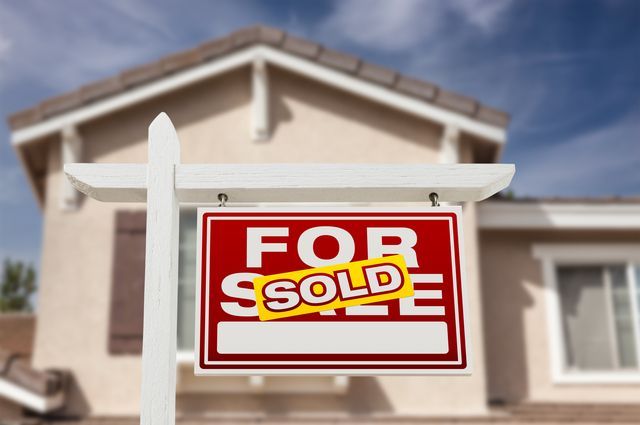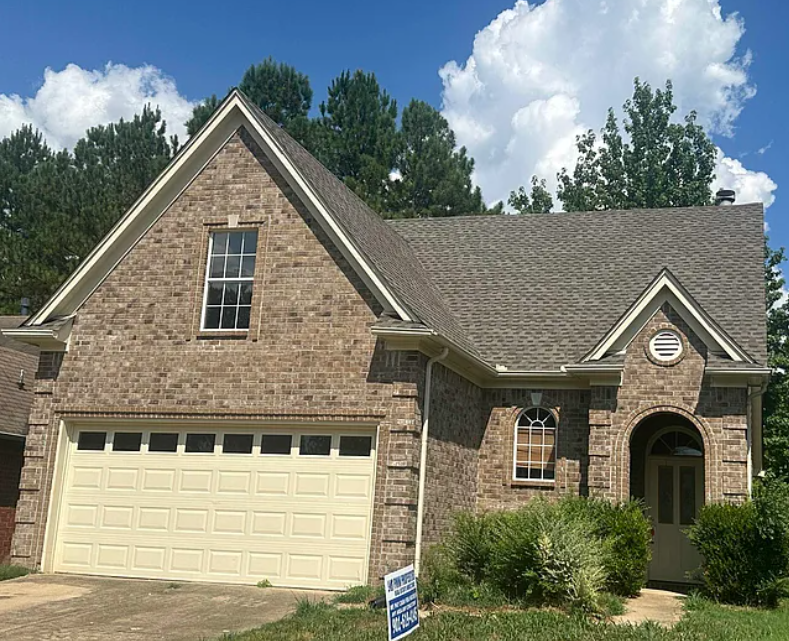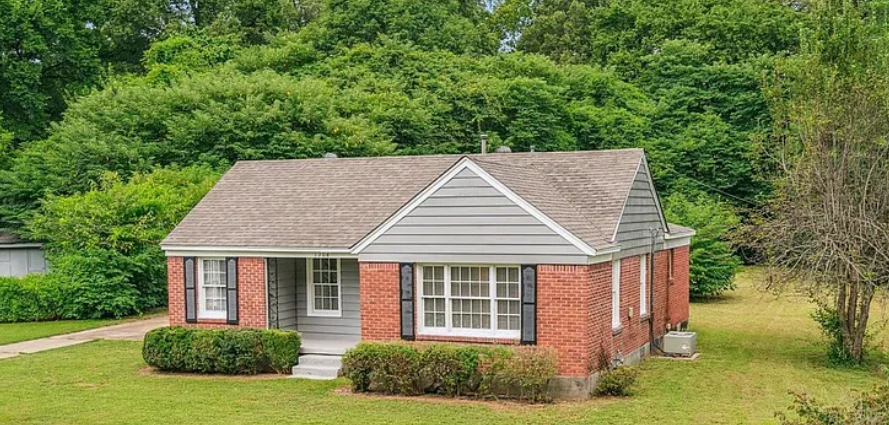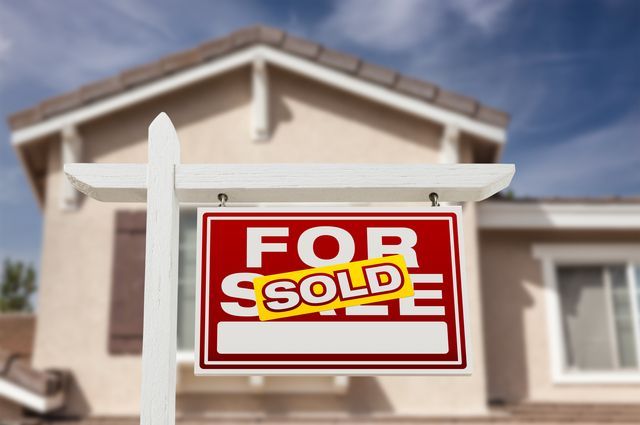By AJ Jeffrey
•
July 20, 2025
Memphis has emerged as one of the most attractive real estate investment markets in the United States, combining affordable property prices, strong rental demand, favorable landlord-tenant laws, and strategic location advantages that create compelling opportunities for both novice and experienced investors. With median home prices of $204,625 in 2025 and rental yields that often exceed national averages, Memphis provides investors with cash flow potential and appreciation opportunities that are increasingly difficult to find in higher-cost markets. The Memphis metropolitan area's diverse economy, anchored by logistics, healthcare, and manufacturing industries, creates stable employment that supports consistent rental demand across various price points and property types. From affordable single-family homes in established neighborhoods to luxury properties in East Memphis and suburban developments in DeSoto County, Mississippi, investors can build diversified portfolios that generate immediate cash flow while positioning for long-term appreciation. Memphis's position as a major logistics hub, with FedEx's global headquarters and numerous distribution centers, continues to attract businesses and workers that drive housing demand throughout the metropolitan area. The city's ongoing downtown revitalization, infrastructure improvements, and population growth create investment opportunities in both established markets and emerging neighborhoods that offer different risk and return profiles for various investment strategies. Understanding Memphis's investment landscape, including neighborhood dynamics, rental market conditions, property management considerations, and regulatory environment, helps investors make informed decisions about property acquisition and portfolio development in one of the South's most dynamic real estate markets. Memphis Investment Market Overview Memphis's real estate investment market benefits from unique characteristics that distinguish it from other major metropolitan areas, creating opportunities for investors seeking cash flow, appreciation, or portfolio diversification in an affordable and growing market. detailed 2025 market trends and analysis Economic Fundamentals and Employment Memphis's economy has diversified significantly over the past decade, reducing dependence on any single industry while maintaining its traditional strengths in logistics and transportation. The metropolitan area's unemployment rate consistently tracks below national averages, providing stability that supports rental demand and property values. The logistics and distribution sector continues to drive economic growth, with Memphis International Airport serving as a global cargo hub and the city's central location providing access to 70% of the U.S. population within a day's drive. This strategic advantage attracts businesses and creates employment opportunities that support housing demand. Healthcare represents another major economic pillar, with institutions like St. Jude Children's Research Hospital, Methodist Le Bonheur Healthcare, and the University of Tennessee Health Science Center providing stable, high-paying employment that supports rental markets throughout the metropolitan area. Manufacturing and professional services sectors have expanded in Memphis, creating diverse employment opportunities that reduce economic risk and provide multiple sources of rental demand for investment properties. Population and Demographic Trends The Memphis metropolitan area's population of approximately 1.3 million provides a substantial base for rental demand, with demographic trends that favor rental housing over homeownership for significant portions of the population. Young professionals attracted to Memphis's affordable cost of living and employment opportunities often prefer rental arrangements that provide flexibility while they establish careers and evaluate long-term housing decisions. The area's universities, including the University of Memphis, Rhodes College, and various medical schools, create consistent demand for rental housing from students, faculty, and staff who prefer rental arrangements over homeownership. Population migration patterns within the metropolitan area, including movement from urban core areas to suburban communities and from higher-cost markets to Memphis, create opportunities for investors who understand these demographic shifts. Affordability and Cash Flow Potential Memphis's median home price of $204,625 represents exceptional affordability compared to national averages, allowing investors to acquire properties with lower capital requirements while generating positive cash flow from rental income. Rental rates in Memphis typically range from $800 to $1,500 for single-family homes, depending on location, size, and condition, providing gross rental yields that often exceed 8% to 12% annually for well-selected properties. The relationship between purchase prices and rental rates in Memphis creates opportunities for immediate cash flow that can support mortgage payments, property expenses, and investor returns without requiring significant appreciation for investment success. Property taxes in Memphis and Shelby County remain reasonable compared to many metropolitan areas, typically ranging from 1% to 1.5% of assessed value, helping maintain positive cash flow for rental properties. Neighborhood Investment Analysis Memphis's diverse neighborhoods offer different investment opportunities, risk profiles, and return potential that allow investors to develop strategies aligned with their objectives and risk tolerance. cash buyer activity by neighborhood East Memphis: Established Rental Market East Memphis represents the metropolitan area's most established and stable rental market, with median home prices around $320,000 and strong demand from professionals, families, and corporate relocations who value the area's schools, amenities, and location. Properties in East Memphis typically command rental rates of $1,200 to $2,000 monthly, providing gross yields of 4% to 7% depending on acquisition prices and property characteristics. While yields may be lower than other areas, the stability and quality of tenants often justify the premium pricing. The area's mature infrastructure, established neighborhoods, and proximity to employment centers create long-term stability that appeals to conservative investors seeking predictable returns and minimal management challenges. Investment strategies in East Memphis often focus on quality properties that attract long-term tenants willing to pay premium rents for desirable locations and amenities. Midtown Memphis: Urban Revitalization Opportunity Midtown Memphis offers investors opportunities to participate in ongoing urban revitalization while generating rental income from properties that appeal to young professionals, medical students, and urban lifestyle enthusiasts. Property acquisition costs in Midtown typically range from $100,000 to $300,000, with rental potential of $900 to $1,500 monthly depending on property size, condition, and specific location within the diverse Midtown area. The neighborhood's walkability, cultural amenities, and proximity to downtown employment centers create rental demand from tenants who value urban lifestyle benefits and are willing to pay competitive rents for quality housing. Renovation opportunities in Midtown can provide value-add investment strategies for investors with construction experience and capital for property improvements that increase rental rates and property values. Suburban Growth Areas: Family Rental Market Suburban areas including Germantown, Collierville, and DeSoto County, Mississippi, offer investors access to family rental markets with higher rental rates and stable, long-term tenants who value suburban amenities and school quality. Properties in these areas typically require higher acquisition costs, ranging from $250,000 to $450,000, but command rental rates of $1,400 to $2,500 monthly from families and professionals who prefer suburban living. The tenant profile in suburban areas often includes corporate relocations, medical professionals, and families who value stability and are willing to sign longer-term leases, reducing turnover costs and vacancy periods. Investment strategies in suburban areas focus on quality properties that meet family needs, including good schools, safe neighborhoods, and proximity to employment centers and amenities. Emerging Neighborhoods: Value and Appreciation Potential Memphis has several emerging neighborhoods where strategic investments can provide both current cash flow and future appreciation potential as areas undergo revitalization and development. These areas often offer lower acquisition costs, typically $75,000 to $150,000, with rental potential that can generate high yields while positioning investors for appreciation as neighborhoods improve. Investment success in emerging areas requires understanding neighborhood trends, development plans, and demographic shifts that indicate future growth potential. Risk management in emerging neighborhoods involves careful property selection, understanding local market dynamics, and maintaining adequate reserves for potential vacancy periods or market changes. Investment Property Types and Strategies Memphis's diverse housing stock and rental market conditions support various investment strategies that can be tailored to investor objectives, experience levels, and available capital. Single-Family Rental Properties Single-family homes represent the most common investment strategy in Memphis, offering investors straightforward property management, broad tenant appeal, and potential for both cash flow and appreciation. Acquisition strategies for single-family rentals often focus on properties priced between $100,000 and $250,000 that can generate rental income of $1,000 to $1,800 monthly, providing gross yields of 8% to 12% annually. Property selection criteria typically include good neighborhoods, solid construction, minimal deferred maintenance, and layouts that appeal to target tenant demographics such as families, young professionals, or corporate relocations. Management considerations for single-family rentals include tenant screening, maintenance coordination, and lease administration that can be handled by investors directly or through professional property management companies. local cash buyer landscape Multi-Family Properties Small multi-family properties, including duplexes, triplexes, and small apartment buildings, provide investors with opportunities for higher returns and economies of scale while spreading risk across multiple rental units. Memphis's multi-family market includes properties ranging from $150,000 duplexes to $500,000+ small apartment buildings, with rental income potential that often exceeds single-family yields due to multiple income streams. Multi-family investments require more sophisticated analysis including individual unit rental potential, common area maintenance, and property management complexity that increases with the number of units. Financing for multi-family properties may require larger down payments and different loan programs than single-family investments, affecting cash requirements and return calculations. Fix-and-Flip Strategies Memphis's affordable housing market and strong demand for updated properties create opportunities for fix-and-flip investments that can generate substantial returns for investors with renovation experience and adequate capital. Successful fix-and-flip projects typically involve acquiring properties at 60% to 70% of after-repair value, completing strategic renovations, and reselling properties to owner-occupants or other investors within 6 to 12 months. Renovation costs in Memphis are generally lower than national averages due to affordable labor and materials, though investors must understand local building codes, permit requirements, and market preferences for finishes and layouts. Market timing and exit strategies are crucial for fix-and-flip success, requiring understanding of seasonal sales patterns, buyer preferences, and market conditions that affect resale potential and pricing. Buy-and-Hold Appreciation Plays Long-term buy-and-hold strategies focus on properties in areas with strong appreciation potential, often accepting lower initial yields in exchange for long-term wealth building through property value increases. Memphis neighborhoods undergoing revitalization or benefiting from infrastructure improvements may offer appreciation opportunities that complement rental income for total return optimization. These strategies require patience and adequate cash flow to support properties during appreciation periods, along with understanding of local development trends and economic factors that drive property value increases. Tax benefits including depreciation, expense deductions, and potential 1031 exchanges can enhance returns for buy-and-hold investors who understand real estate tax strategies. cash buying services for investors Rental Market Dynamics Understanding Memphis's rental market conditions, tenant demographics, and seasonal patterns helps investors optimize their property selection, pricing, and management strategies for maximum returns. Rental Rate Analysis by Area Rental rates in Memphis vary significantly by neighborhood, property type, and condition, with investors needing to understand local market dynamics to price properties competitively while maximizing income. East Memphis properties typically command the highest rental rates, ranging from $1,200 to $2,000 monthly for single-family homes, reflecting the area's desirability and tenant demographics. Midtown rental rates typically range from $900 to $1,500 monthly, with properties closer to downtown and in better condition commanding premium pricing within this range. Suburban areas including Germantown and Collierville support rental rates of $1,400 to $2,500 monthly, with family-oriented properties and good school districts justifying higher pricing. More affordable neighborhoods throughout Memphis offer rental opportunities in the $700 to $1,200 range, providing higher yield potential for investors willing to work in these markets. Tenant Demographics and Preferences Memphis's rental market includes diverse tenant demographics with different preferences, lease terms, and rental rate expectations that influence investment strategies and property management approaches. Young professionals typically prefer updated properties in Midtown or East Memphis with modern amenities, walkability, and proximity to employment centers, often willing to pay premium rents for quality and location. Families generally seek suburban properties with good schools, safe neighborhoods, and adequate space, often signing longer-term leases and maintaining properties well in exchange for stability. Students and medical residents create demand for affordable rental housing near universities and medical centers, often accepting smaller spaces or shared housing arrangements in exchange for lower rents and flexible terms. Corporate relocations provide opportunities for higher-end rental properties with furnished options and flexible lease terms that command premium pricing for convenience and quality. Seasonal Patterns and Market Timing Memphis's rental market experiences seasonal patterns that affect vacancy rates, rental pricing, and tenant turnover, with investors benefiting from understanding these cycles for optimal property management. Spring and summer months typically see increased rental activity as families prefer to move during school breaks and weather conditions favor relocations, creating opportunities for rent increases and reduced vacancy periods. Fall rental activity often focuses on student housing and young professional relocations, with different property types and neighborhoods experiencing varying demand levels. Winter months may see reduced rental activity and increased vacancy periods, though this can create opportunities for property acquisitions and renovations during slower periods. Understanding seasonal patterns helps investors time rent increases, property improvements, and marketing efforts for optimal results. Property Management Considerations Successful real estate investment in Memphis requires effective property management strategies that maintain properties, satisfy tenants, and optimize returns while minimizing investor time and stress. Self-Management vs. Professional Management Self-management can maximize cash flow by eliminating management fees, typically 8% to 12% of rental income, but requires investor time, knowledge, and availability for tenant issues and property maintenance. Professional property management companies provide expertise in tenant screening, lease administration, maintenance coordination, and legal compliance, though their fees reduce cash flow and investors must evaluate management quality carefully. The decision between self-management and professional management often depends on investor experience, available time, property portfolio size, and geographic proximity to investment properties. Hybrid approaches may involve professional management for some properties while self-managing others, allowing investors to optimize their management strategies based on property characteristics and personal preferences. Tenant Screening and Selection Effective tenant screening reduces vacancy periods, minimizes property damage, and ensures consistent rental income through careful evaluation of applicant qualifications and rental history. Screening criteria typically include credit scores, income verification, employment history, rental references, and background checks that help identify reliable tenants who will maintain properties and pay rent consistently. Memphis's rental market provides sufficient tenant demand to maintain selective screening standards while achieving reasonable vacancy rates, allowing investors to prioritize quality tenants over quick occupancy. Legal compliance with fair housing laws and Tennessee tenant screening regulations requires understanding of prohibited discrimination practices and proper documentation of screening decisions. Maintenance and Capital Improvements Proactive maintenance strategies help preserve property values, reduce emergency repair costs, and maintain tenant satisfaction that supports lease renewals and positive rental references. Memphis's climate requires attention to HVAC systems, roofing, and moisture control that can prevent major problems and extend property life when addressed promptly and professionally. Capital improvement planning helps investors budget for major expenses such as roof replacement, HVAC updates, and flooring improvements that maintain competitiveness and property values. Contractor relationships and maintenance systems become increasingly important as investment portfolios grow, requiring reliable service providers and efficient coordination processes. Legal and Regulatory Environment Tennessee's landlord-tenant laws and Memphis's regulatory environment create a generally favorable climate for real estate investors, though understanding legal requirements and compliance obligations is essential for successful investing. Tennessee Landlord-Tenant Law Tennessee's landlord-tenant laws generally favor property owners while providing basic tenant protections, creating a balanced regulatory environment that supports rental property investments. Eviction procedures in Tennessee are relatively straightforward and efficient compared to many states, allowing investors to address non-paying or problematic tenants through established legal processes. Security deposit regulations limit deposits to amounts equal to one month's rent and require proper handling and return procedures, though these requirements are manageable for most investors. Lease requirements and tenant rights are clearly defined in Tennessee law, providing predictable frameworks for rental relationships and dispute resolution. Local Regulations and Compliance Memphis and Shelby County have specific regulations regarding rental property registration, inspections, and safety requirements that investors must understand and comply with to avoid penalties and legal issues. Rental property registration requirements may apply to certain types of properties or neighborhoods, with fees and inspection requirements that affect operating costs and compliance obligations. Building codes and safety regulations require rental properties to meet minimum standards for habitability, electrical systems, plumbing, and structural integrity that may require investments in older properties. Zoning regulations affect property use and may limit rental activities in certain neighborhoods or property types, requiring investor understanding of local zoning laws and restrictions. Tax Considerations and Benefits Real estate investment taxation in Tennessee benefits from the state's lack of personal income tax, though investors must understand federal tax obligations and opportunities for real estate investments. Depreciation benefits allow investors to deduct property depreciation over 27.5 years for residential rental properties, providing significant tax advantages that enhance investment returns. Expense deductions for property management, maintenance, insurance, and other operating costs reduce taxable income and improve after-tax returns for rental property investments. 1031 exchanges provide opportunities for tax-deferred property exchanges that allow investors to upgrade properties or change markets without immediate tax consequences on capital gains. Financing and Investment Analysis Understanding financing options and investment analysis methods helps Memphis investors structure deals effectively and evaluate opportunities for optimal returns and risk management. Financing Options for Investment Properties Conventional investment property loans typically require 20% to 25% down payments with interest rates slightly higher than owner-occupied financing, affecting cash requirements and return calculations. Portfolio lenders and local banks may offer more flexible terms for experienced investors or those purchasing multiple properties, potentially providing better rates or terms than national lenders. Hard money and private lending options provide faster closing and more flexible qualification criteria for investors pursuing fix-and-flip strategies or time-sensitive opportunities. Cash purchases eliminate financing costs and contingencies while providing negotiating advantages and faster closings, though they require substantial capital and affect return calculations. Investment Analysis and Due Diligence Cash flow analysis should include all income and expenses including rental income, vacancy allowances, property management, maintenance, insurance, taxes, and debt service to determine true investment returns. Cap rate calculations help investors compare properties and markets by dividing net operating income by purchase price, providing standardized metrics for investment evaluation. Cash-on-cash return analysis measures annual cash flow against initial cash investment, helping investors understand returns on their actual capital deployment. Market analysis should include comparable rental rates, vacancy rates, employment trends, and development activity that affect long-term investment performance and risk. Conclusion: Building Wealth Through Memphis Real Estate Memphis offers real estate investors compelling opportunities to build wealth through cash flow and appreciation in one of America's most affordable and dynamic metropolitan areas. The combination of low acquisition costs, strong rental demand, favorable landlord-tenant laws, and economic growth creates an environment where investors can achieve their financial objectives while building diversified property portfolios. Success in Memphis real estate investment requires understanding local market dynamics, selecting appropriate investment strategies, and implementing effective property management systems that optimize returns while minimizing risks. Investors who take time to learn the market, build professional relationships, and develop systematic approaches to property acquisition and management often achieve superior results compared to those who approach investing casually or without adequate preparation. The Memphis market's accessibility to investors with various experience levels and capital amounts makes it an excellent choice for both beginning investors seeking cash flow and experienced investors looking to expand their portfolios in growing markets. By focusing on sound investment principles, thorough market analysis, and professional property management, investors can build substantial wealth through Memphis real estate while contributing to the community's continued growth and development. Remember that real estate investment success requires patience, continuous learning, and adaptation to changing market conditions. Memphis provides the foundation for successful investing, but individual results depend on strategy execution, market timing, and ongoing commitment to professional property management and portfolio optimization.












